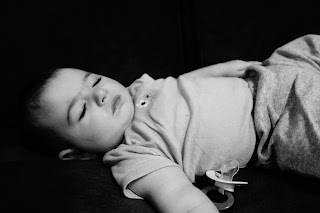There are two trains of thought when it comes to eating disorders and recover (and probably any addiction and cooresponding recovery for that matter).
1. One has the ability to fully recover. You recover, move on, and never deal with your disorder again.
2. One will never be 100% recovered and thus will always have some lingering effects, regardless of how big or small these effects might be. Basically, you will live with your disorder your entire life.
A New York Times article states "It is difficult to define recovery from an illness that has both physical and mental dimensions." This is very true. Very, very true.
The article expands on this idea. . .
"If, for example, a patient reaches “normal weight” — which researchers define as either 85 or 95 percent of a person’s ideal weight — and starts menstruating again, she would be considered to have recovered in most studies. But what if she still weighs herself daily, monitors her calories with a vengeance and obsesses about food and the size of her ankles? Or, as is often the case, moves from anorexia to bulimia or binge-eating disorder?" - Source
See how this gets a little tricky?
How do you define recovery for an issue that is soooooo amazingly complex?
I don't think there is a black and white answer. And I think, in a sense, recovery looks a little different for everyone.
So what does it look like for me?
It's looking back on my darkest days, and the behaviors that accompanied me during my darkest days, and asking myself "ok, so where am I now?"
We Are The Real Deal also wrote a post on this concept called "Full Recovery from Eating Disorder is Possible.
Like the author's experience in the blog post, there are several components that had to fall into place before I could say, without a doubt, "Yep - I'm recovered. Fully. No doubt."
Here's a few that immediately come to mind...
I knew I was fully recovered when. . .
- I stopped weighing myself on a daily basis. (Which later translated to a weekly/monthly basis)
- I stopped measuring my food.
- I stopped obsessing about what I would order when we went to a restaurant.
- I no longer felt a sense of accomplishment when I turned down one of my fear foods.
- I no longer felt a sense of accomplishment when I ate less than friends or family.
- I no longer had food on the brain 24/7. (Side note- It is quite ironic how one, who is so scared of food, can think about food. day. long. I could dedicate an entire blog post to this irony.)
- I could eat one of my fear foods and not dwell on it all day long.
- Guilt was no longer associated with food.
- There was no longer good vs. bad goods - but instead more of a balance.
- I could sense my stress starting to build, yet was able to manage it in other healthier ways, besides controlling my food intake.
- Good days vs. bad days were not determined by my weight.
- I stopped associating a set number on the scale with being "fat" vs. "skinny"
- I was able to consistently set appropriate boundaries with other people, when necessary.
- I no longer limited myself to a black and white, perfectionist way of thinking.
- I no longer got my self worth or self confidence from the size of my jeans, but rather from my Creator and Savior.
- I once again found joy in eating a variety of different foods.
- I started saying yes to social outings that involved food, rather than saying no because I was too scared of what I would have to eat.
- The first first thing I wanted to do each morning was grab my coffee and Bible and talk to my God, rather than weigh myself (all alone, in the dark, in my bathroom).
Now. . . This doesn't mean that I will never again feel fat, never again step on a scale, never again second guess eating that second piece of double fudge cookie cake, or never again have a day when I struggle with body image. I think these things just go hand in hand with being a woman, or a human for that matter. Take the most self assured person around and I guarantee they have days when they don't particularly like the extra dimples on their thighs, or they order the grilled chicken instead of the fried just because it's the healthier option.
Do you get what I'm saying here?
If I turn down dessert it's just because I don't feel like having dessert. Or maybe I'm full. Or maybe I want to have some dessert when I get home. If I order a salad for my meal that just means a salad sounds good at that time, not that I have fallen back into my disordered ways.
I can say these things with confidence. Because I have come that far.
Praise God. Praise His holy name. He has brought me up out of the pit and set my feet on new ground. Much more sturdy, solid ground. I'm living proof of Psalm 40:2.
So there you go. That's a little bit about how I view (my) recovery.
What about you? For those of you with an eating disorder past, do you consider yourself fully recovered? Or if you have struggled in another way, what does recovery look like for you? I would really love to hear other people's thoughts on this topic.


































